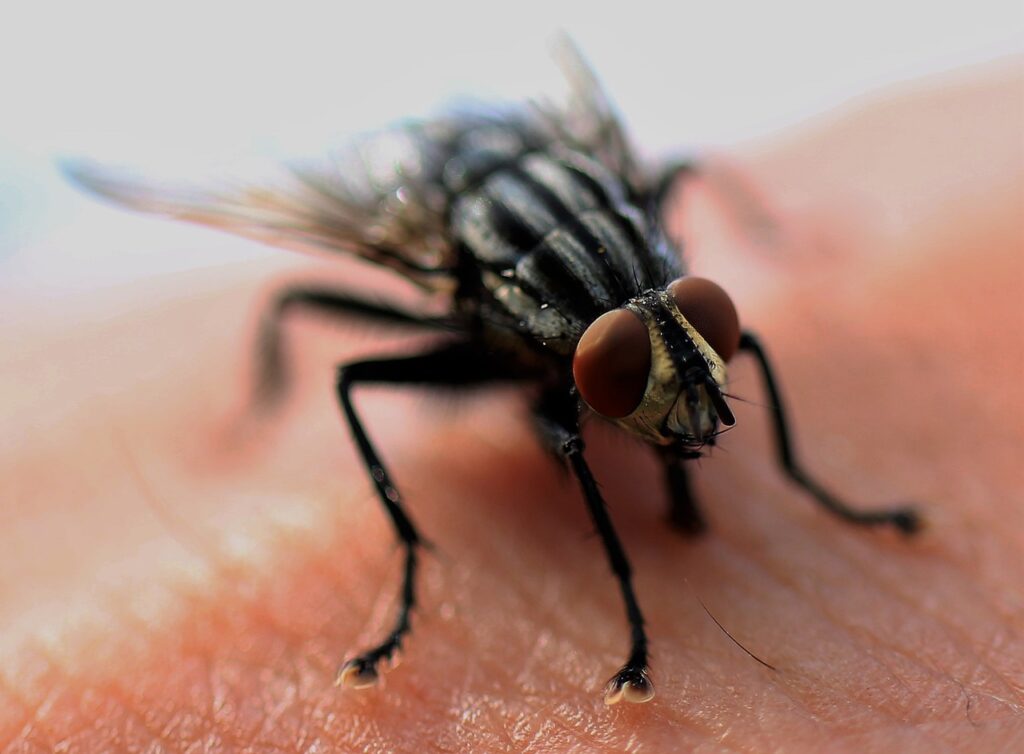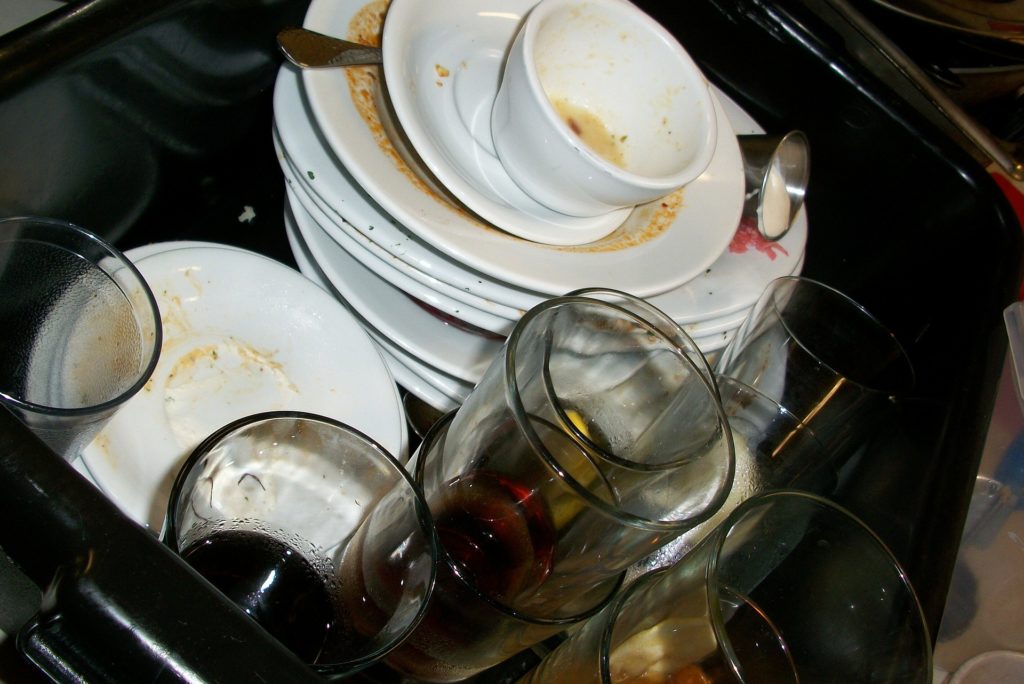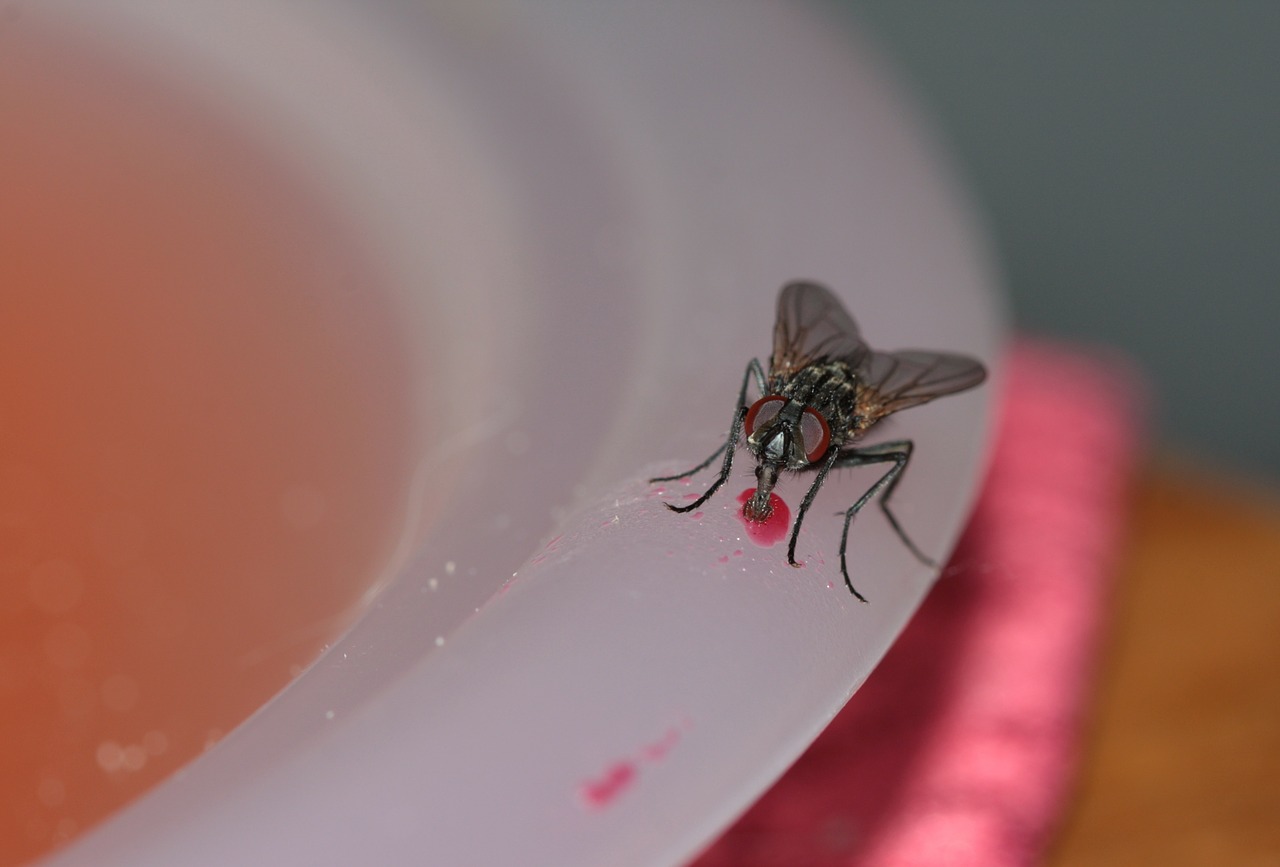We all know that flies are vile creatures. They thrive on filth and transfer that filth onto everything they touch — including your food! But what do flies actually do when they land on your food?
What flies do when they land on food
Flies do nasty things on your food whenever they land on it. They taste it with their dirty feet, spit on it, and spread bacteria on it. This is dangerous because these bacteria can make you sick.
- They taste their landing area with their feet. Flies have taste receptors on their feet. This is part of the reason you often see flies rubbing their feet together every time they land on something, as if they are preparing for a meal. They are cleaning themselves and their taste receptors to have a better idea of the thing they have landed on. Once they have realized they are onto something interesting and nutritious, they move on to the next step.
- They spit on the food to melt it down. Flies don’t have mouths or teeth that they can use to chew food, so they can’t really consume complete solids. To eat, they spit on their food to partly melt it down with the enzymes on their saliva. They sponge up the melted part with their proboscises.
- They spread diseases in various ways. Flies are not very fussy when it comes to food. They can consume animal corpses and fecal matter. This means that their guts are full of different kinds of bacteria from the disgusting things they consume, and they are transferring these bacteria on the food they land on through their spit. Flies also urinate and defecate around your home — acts that also spread bacteria. Fly bodies are also full of bacteria because of the places they tend to stay in. Cholera, e. coli infections, and salmonellosis are only some of the diseases you can get from flies.

How to stop flies from landing on food
You can stop flies from landing on your food by not having flies in your home. This means you should get rid of the flies pestering your property and avoid the things that may attract a new batch of these pests.
- Get rid of flies. You can get rid of flies with the help of pest control professionals, especially if you think you have a severe infestation that you can no longer handle on your own. But if you think you can handle the flies yourself, there are many methods you can try. You can rely on commercial products like insecticides and traps, but make sure to follow their instructions to ensure their effectiveness and safety. You can also repel flies by spreading scents they hate around your home, such as basil, cayenne pepper, clove, lemon, lavender, and mint. But take note that these methods can be ineffective in severe infestations.
- Keep doors and windows closed. You are not the only ones using doors and windows. Pests like flies also use these as passageways to get in and out of your home. If you keep them open, you are making your home easily accessible to these pests. Keeping your doors and windows closed can be particularly hard during summer, a time where flies coincidentally breed. You can keep your home cool and ventilated with air conditioners and fans.
- Store food and water properly. If you notice flies seem to land on your food all the time, maybe it’s time to rethink how you store your food. It may be too accessible for the flies. As much as possible, store food and water in cabinets, containers, and refrigerators where they can’t easily be accessed by pests. Even fruits and vegetables you leave in an open basket in your kitchen are easy targets for flies.

How to prevent flies from thriving on your property
Your home should not be an ideal place for flies to thrive. This means your home should not have easy access to resources that flies find attractive. It should also be inaccessible from the outside.
- Keep your property’s exterior and interior clean. Female flies lay their eggs in places they consider safe and full of resources. This is why you see flies and maggots thriving so well in animal carcasses and garbage cans. Once maggots emerge from fly eggs, they are instantly greeted with food they need to develop. To prevent flies from thriving on your property, you have to keep compost piles, garbage cans, and other potential nests clean and maintained.
- Clean up immediately after eating. Flies industriously look for resources in their vicinity. Don’t give them a reason to go to your property. After eating, wash the dishes immediately, pick up food crumbs, and wipe spills. Flies are small creatures, with most of them only about five to seven millimeters long. Because of their size, even small food crumbs on your dining table and tiny spills on your kitchen floor are enough to sustain these pests. These small pieces of resources may be unattractive to you, but they definitely are for such small pests.
- Seal all potential passageways. Open doors and windows are not the only passageways for flies. Cracks, gaps, and holes all over your home are also good candidates. Because of their size, flies can go through even the tiniest of these structural damages. Make sure to fix these with the appropriate sealants to stop them from becoming a bridge between your home and the outside world where various pests thrive.
Flies do nasty things when they land on food
When flies land on your food, they taste it with their dirty feet, spit on it, and spread bacteria on it. You have every incentive in the world to stop flies from landing on your food. The best way to do this is to get rid of the flies themselves because they are natural health hazards anyway as disease spreaders. Once you get rid of them, you should implement measures, so they don’t come back. Make food and water inaccessible in your home and keep your vicinity clean to make your property unattractive to these pests.

